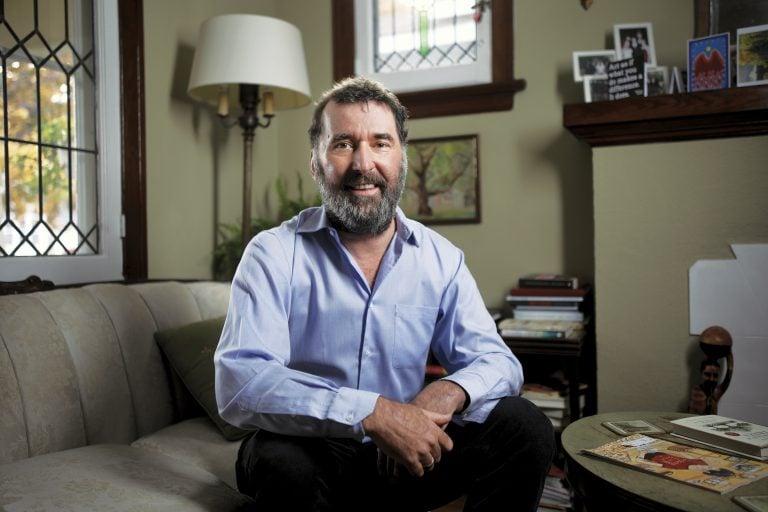Paul Dewar: The 2018 Lifetime Achievement Award winner
As the three-term former MP fights a cancer diagnosis, Maclean’s honours his contribution to Parliament

Former NDP MP Paul Dewar (Photo: Blair Gable)
Share
UPDATE: Paul Dewar died on Feb. 6, 2019 at age 56. Below is a profile of him in honour of his Lifetime Achievement Award at the Parliamentarians of the Year Awards in 2018.
Paul Dewar was nine years old when his mother, Marion Dewar, before then a nurse, was elected to Ottawa’s city council. But it was only after she became mayor in 1978, the year Paul turned 15, that he remembers her political life mattering much to him. More than a local leader, her championing of the cause of resettling thousands of so-called “boat people” from Vietnam, Laos and Cambodia in 1979 landed her at the centre of a national story. “And so growing up it was this dichotomy,” Dewar says, “between my mother at home, who was always my mom, and being the mayor of Ottawa, being a very public person.”
He followed her footsteps into politics, emerging as one of the most respected NDP MPs while he represented the Ottawa Centre riding from 2006 to 2015. After he lost his seat in the 2015 election, Dewar threw himself into post-politics causes like building democratic institutions and health care abroad. After he announced last spring that he has glioblastoma—similar to the brain cancer that killed musician Gord Downie and U.S. Sen. John McCain—Dewar’s poise in projecting his long-held values as he faces an incurable disease has drawn a new level of admiration in political circles.
MORE COVERAGE: Nathan Cullen is the 2018 Parliamentarian of the Year
As a young left-winger, Dewar worked in the local office of an Ontario cabinet minister after the NDP’s surprise win in the 1990 provincial election. “It gave me on-the-ground experience working with constituents and citizens here in Ottawa,” he says. He went on to become a schoolteacher and, following a classic NDP path, a teachers’ union official. Even in that role, the sorts of interests that drove his mother’s commitment to refugees animated him. “I felt teachers should be more global,” he says. He helped spearhead a push for teachers to have money deducted from their paycheques to go to former NDP icon Stephen Lewis’s fund to combat HIV/AIDS in Africa.
Perhaps inevitably, Dewar’s ambitions turned to getting elected. He saw a chance in 2004, when the incumbent Liberal MP in Ottawa Centre was appointed to the Senate. Dewar decided to run to be the NDP candidate—only to be surprised when former NDP leader Ed Broadbent came out of retirement to contest the nomination. “My wife Julia said it was like running against God,” Dewar says with a laugh.
God won. But Broadbent sat as an Ottawa MP for only two years, and Dewar stepped in to win in the 2006 election—with Broadbent’s strong support. He found himself in an NDP caucus led by Jack Layton. Dewar says he was impressed by Layton’s insistence that the NDP must propose concrete policy solutions, rather than just “hectoring and lecturing” the Conservative government of then-prime minister Stephen Harper.
Dewar is hardly alone in bemoaning the braying partisanship that too often defines Parliament Hill. Asked what moments he remembers as transcending that tone, he credits Harper for the day he apologized formally to Indigenous people for the residential schools era on the floor of the House. What would elevate the atmosphere and boost the productivity of Parliament on more routine days? Dewar proposes, for example, reforms to give House committees more clout.
While Dewar, 55, conveys undiminished passion about Parliament, he’s even more determined to leave a legacy at the community level through a new charity called Youth Action Now, which he established with friends after his cancer diagnosis. His voice takes on a different intensity, a quieter kind, when he turns to the “very poignant and profound” days he is now living through with his wife and their two sons, both in their early 20s. Leaning forward in a well-worn chair in the cozy living room of their Ottawa home, Dewar talks of being “intentional” about how he takes in the ordinary. “It’s everything around me,” he says, “and seeing the beauty of everything around me in a way I’ve never seen it before.”